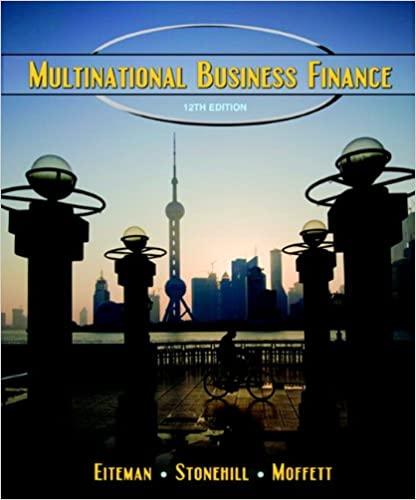Question
Dividend constraints A firm has $850,000 in paid-in capital, retained earnings of $40,000 (including the current year's earnings), and 25,000 shares of common stock outstanding.
Dividend constraints A firm has $850,000 in paid-in capital, retained earnings of $40,000 (including the current year's earnings), and 25,000 shares of common stock outstanding. In the current year, it has $30,000 of earnings. a. What is the most the firm can pay in cash dividends to each common stockholder? (Assume that legal capital includes all paid-in capital.) b. What effect would a cash dividend of $0.72 per share have on the firm's balance sheet entries? c. If the firm cannot raise any new funds from external sources, what do you consider the key constraint with respect to the magnitude of the firm's dividend payments?
Step by Step Solution
There are 3 Steps involved in it
Step: 1

Get Instant Access to Expert-Tailored Solutions
See step-by-step solutions with expert insights and AI powered tools for academic success
Step: 2

Step: 3

Ace Your Homework with AI
Get the answers you need in no time with our AI-driven, step-by-step assistance
Get Started


